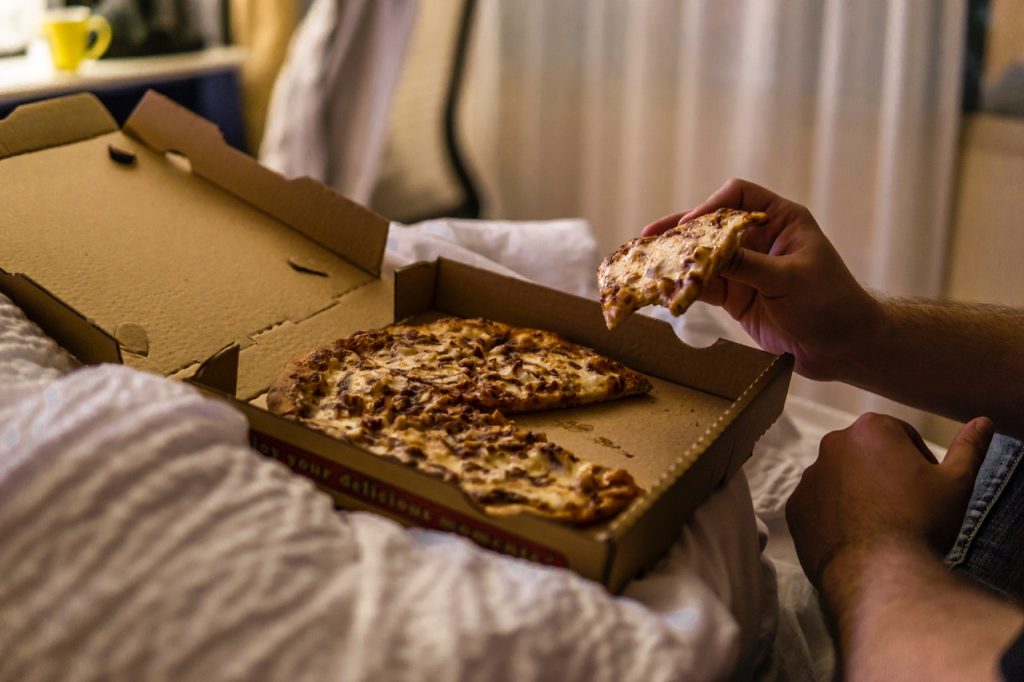Researchers from the Centre for Nutrition, Exercise and Metabolism at the University of Bath decided to compare the effects of normal and maximal eating. Normal eating means finishing when you’re comfortably full, while maximal eating means finishing when you can’t imagine another bite. The researchers recruited 14 young men between ages 22 and 37 for this experiment and fed them pizza.
3000 kcal in one sitting
The first thing that the authors found was that participants managed to eat about twice as many calories in the maximal eating experiment than when eating normally. On average, they consumed about 1.5 large pizzas or about 3000 kcal when trying to eat as much as possible. This is more than an average person needs to eat in a whole day. But some of them ate even more, managing to finish 2.5 large pizzas in one sitting.

Blood sugar was normal
The most surprising results came from the blood work. The study showed that after eating this extreme meal the participants had normal blood sugar levels, their insulin levels were 50% higher than normal, blood lipids were only slightly increased, and only hormones that stimulate insulin secretion and feelings of fullness were significantly changed.
Lead researcher Aaron Hengist explained: “We all know the long-term risks of over-indulgence with food when it comes to obesity, type II diabetes and cardiovascular disease, but we know much less about some of the immediate effects ‘all you can eat’ places on the body. Our findings show that the body actually copes remarkably well when faced with a massive and sudden calorie excess. Healthy humans can eat twice as much as ‘full’ and deal effectively with this huge initial energy surplus.”

No need for a dessert
The study also revealed one smaller surprise. The participants felt sleepy for a few hours after the feast, which is normal, but they had no desire for anything sweet. Switching from savoury to sweet usually lights up the reward centres in the brain, which is why everyone seems to always have room for dessert. But not in this scenario.
Aaron Hengist summarized: “The main problem with overeating is that it adds more stored energy to our bodies (in the form of fat), which can culminate in obesity if you overeat day after day. However, this study shows that if an otherwise healthy person overindulges occasionally, for example eating a large buffet meal or Christmas lunch, then there are no immediate negative consequences in terms of losing metabolic control.”




